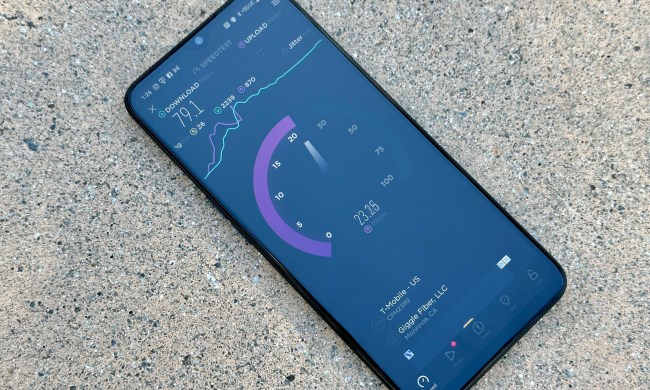On Tuesday morning, T-Mobile announced that it has expanded access to its residential 5G Home Internet service in 51 cities and towns throughout Florida, Georgia, and North and South Carolina.
Specifically, this is the service that T-Mobile launched in April. Subscribers to the service receive a wireless “Internet Gateway” device to install in their homes, which can be managed with a companion app. The Internet Gateway is all wireless, as opposed to a traditional wired broadband modem. In theory, can be installed anywhere in your home in approximately 15 minutes.

T-Mobile promises that Home Internet customers currently receive average speeds of 50Mbps, and can use a 4G or 5G signal depending on local coverage. It charges $60/month, with no data caps, rental fees, or annual contracts. A currently running promotion promises a permanent $10/month reduction in fees for customers who sign up for autopay.
However, Home Internet is also subject to T-Mobile’s somewhat controversial “data prioritization” policy, which shifts users to the back of the bandwidth queue if they’ve used more than 50GB of data in a given month. You still get technically unlimited data on a Home Internet plan, but it’s subject to slowdowns at peak hours if you’re over the 50GB soft cap.
Home Internet is also subject to T-Mobile’s somewhat controversial “data prioritization” policy.
It’s also not universally automatically available to all interested customers; signups may be restricted by T-Mobile’s local network capacity. As a final caveat, Home Internet was initially incompatible with Hulu at launch, which does not appear to have been fixed at the time of writing.
The Tuesday-morning expansion to Home Internet boosts its coverage area to over 600 places nationwide, according to T-Mobile.
“Today, thousands more households now have access to fast, unlimited high-speed Internet,” said T-Mobile’s Dow Draper, Executive Vice President of Emerging Products at T-Mobile (not to be confused with the Mad Men character), in a press release. “We’re expanding access in places that have never had a real choice when it comes to home broadband, where people are fed up with cable and telco ISPs.”
T-Mobile’s strategy with Home Internet is reasonably transparent: It is targeting competitors, particularly in small-town and rural markets, by specifically appealing to their dissatisfaction with the current state of play in American ISPs. It cites the American Customer Satisfaction Index’s 2021 benchmarks in claiming that, at 65%, Americans are generally less happy with their Internet service providers than any other industry.
The 51 locations that now have access to Home Internet are listed on T-Mobile’s original press release. Noteworthy new markets include Jacksonville, Tallahassee, the Villages, Clewiston, and the Orlando-Kissimmee-Sanford area in Florida; Albany, Cornelia, Dalton, Dublin, Gainesville, and Jefferson in Georgia; Asheville, Fayetteville, Mount Airy, and the Raleigh-Cary area in North Carolina; and Columbia, Newberry, Spartanburg, Sumter, and the Myrtle Beach-Conway-North Myrtle Beach area in South Carolina.


